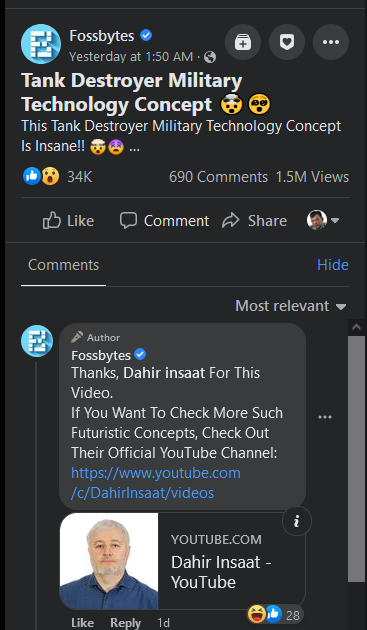 Every now and then, I come across someone from India who has something crappy to say about the Indian diaspora. It makes little sense to me since my roots are only partly East Indian, and I don’t identify as Indian (or anything other than ‘Other’). In my youth, I was constantly asked about this in Trinidad and Tobago because to my father’s side of the family, I was not seen as Indian, and in Trinidad and Tobago at the time – and even now – they would ask me if I was white or Indian.
Every now and then, I come across someone from India who has something crappy to say about the Indian diaspora. It makes little sense to me since my roots are only partly East Indian, and I don’t identify as Indian (or anything other than ‘Other’). In my youth, I was constantly asked about this in Trinidad and Tobago because to my father’s side of the family, I was not seen as Indian, and in Trinidad and Tobago at the time – and even now – they would ask me if I was white or Indian.
It wasn’t til I was 16 or so that I figured out I could be both and neither. I got to pick what I took from different cultures, much to the chagrin of those around me, and built my own identity as most third culture kids do. Had I been in the US, I have no doubts I would have been mistaken for some version of Latino – it happens to this day, and in Trinidad and Tobago these days, I often get mistaken for a Venezuelan.
The trouble isn’t that I don’t know who I am. I do know who I am. The trouble is that I don’t fit neatly into a slot with fuzzy borders of racism.
A few days ago, I was on Twitter, doing my thing when I encountered an Indian who, when he could not refute my comments, went ad hominem, brought up the indentured past of my father’s side of the family. I chuckled. The root problem with looking down on the East Indians who left India as indentured laborers is that there were two choices for the Indentured Laborers: Stay in India, where they believed they had no future (thus they left), or go somewhere else and maybe get some land somewhere and have a future. The British boot remained the same. Such was the British Empire. And, while telling me that I should go and ‘lick the boots of my white masters’, I laughed outright because we were tweeting at each other in…
Guess which language?
You’re right. English.
So Indians looking down on the Indian diaspora for leaving and speaking English vary by only one thing: They stayed in India. That’s it. Now, to be fair, there are tidal pools of culture that formed in the Caribbean and South America, where subcultures formed, but at the very beginning, the chief complaint of people who come after those of Indian descent in such ways is that… they left. And with such winning personalities trolling the diaspora, I can understand why they left.
Yet.
India is not made up of those people alone. I know this because I know people from India, and while we may not agree on some things, we’re respectful and even, in some cases, fairly close friends.  Yesterday, I came across a post by Fossbytes on Facebook that seemed poorly timed given the issues in Ukraine, featuring imaginative (and, I might add, impractical, at least for now) ways to conduct war by a Russian inventor, so I said as much in the comments – it was poorly timed. I don’t know the Russian inventor, I don’t know his politics, and I don’t know that he supports the invasion of Ukraine so I saw no need to jump the gun, per se. So I just said it was poorly timed given the current conflict, and of course I got trolled – I knew that going in.
Yesterday, I came across a post by Fossbytes on Facebook that seemed poorly timed given the issues in Ukraine, featuring imaginative (and, I might add, impractical, at least for now) ways to conduct war by a Russian inventor, so I said as much in the comments – it was poorly timed. I don’t know the Russian inventor, I don’t know his politics, and I don’t know that he supports the invasion of Ukraine so I saw no need to jump the gun, per se. So I just said it was poorly timed given the current conflict, and of course I got trolled – I knew that going in.
Now, here’s the thing. I’m also a FOSS (Free and Open Source Software) advocate and have been since the late 1990s. For a while, I was involved with LinuxGazette.com, I spoke at conferences in the Caribbean and Latin America and got to meet some of the more famous people involved in FOSS advocacy at the time. I wasn’t unknown, I was in that nice little comfortable zone of being known without being famous.
I decided that they may not get my message and went to the Fossbytes.com website, checked the Fossbytes.com about page and… Indian. Which got me thinking something about the very first interaction with India I had since the Ukrainian Invasion started. We’ll get to that.
I got an email address, and sent them a friendly email about it. They haven’t responded, of course, but I did my part and decided to check up on that first interaction.
When things were just starting up in Ukraine, like many people who saw a former colony of the USSR trying to be reclaimed by it’s former colonizer, a sovereign nation being invaded, I was trying to find ways to help out and I noted the wounded, the dead, the Ukrainians leaving Ukraine en masse and I remembered something from after the South East Asian tsunami back when I was writing for WorldChanging.com but was busy with the Alert Retrieval Cache.
In the wake of that tsunami, Indians in the affected areas wrote a brilliant piece of software for finding people after a disaster and I thought, “Well, what is a war but another form of disaster?”
So I emailed the Sahana Foundation on March 28th about using it in assisting with refugees, etc, because it is a brilliant piece of software, or was the last time I saw it in action. To date, 10 days short of 2 months, no response.
So that’s 3 interactions, or 1 interaction and 2 attempted interactions with Indian entities regarding things related to Ukraine.
Now, I know China and India are having issues along their border, I know India and Pakistan have issues along their border (Gandhi is shaking his head somewhere, he said creating Pakistan was a mistake) , and I know India imports oil and weapons from Russia (the latter will be a neat trick with global sanctions on Russia).
I also know I have good friends of India proper.
And I know that the first interaction mentioned was that of a troll who might not be Indian, but sure seemed like it, and let’s face it, being the 2nd most populous country in the world (currently 17.7% of the global population), it’s almost unavoidable to come across someone I disagree with in India.  And I also understand that publishers like Fossbytes.com just churn content, though they did make it a point to hail out the Russian inventor in the contents and that seemed pretty much like they knew what they were doing and pushing a bit on something they knew would be controversial. The comments in that thread certainly have their stats jumping, I’m sure, and hey, as long as the stats are jumping, publishers don’t care as long as they get the views.
And I also understand that publishers like Fossbytes.com just churn content, though they did make it a point to hail out the Russian inventor in the contents and that seemed pretty much like they knew what they were doing and pushing a bit on something they knew would be controversial. The comments in that thread certainly have their stats jumping, I’m sure, and hey, as long as the stats are jumping, publishers don’t care as long as they get the views.
There’s lots of wiggle room here. I start with assuming the best and let people lead me to their worst. This is no different.
Sahana Foundation, however, was a disappointment because their system could have been useful if they chose to. Maybe they don’t check their email. Maybe they don’t care about Ukraine. Maybe the people who check email are superglued to a toilet somewhere. I don’t know.
I do know generally speaking that when you send an email requesting information, you get a response back. Sahana – epic fail. Meanwhile, the Ukrainians have shown themselves resourceful beyond measure and have developed their own stuff on the ground, which means… when this is all over… Sahana will likely be outdated instead of evolved. Software Life Cycle.
In all of these interactions, with the backdrop of India’s lack of condemnation of Russia’s atrocities in Ukraine, I have to wonder how much Indian media has to do with this. I have to wonder how much the Russian echo chambers are resonating within the walls of India’s media that was browbeat by the Indian government during Covid and simply didn’t publish things that challenged the government (per a few friends in India). Or stopping exporting wheat when the globe has a wheat issue, understandable to an extent given India accounts for 17.7% of the global population and the current heat wave in India.
Now, here’s the thing. I wrote a lot about India here, but this isn’t an Indian issue. It’s a global issue. The Ukrainian issue is a global issue. But these 3 interactions with Indian entities gave me pause.
And then I remembered the Indians serving in the International Legion of Defense of Ukraine, and it all balanced out.
It’s easy to classify people by color, race, culture, region, religion, gender, and whether they think the boiled egg should be opened from the small or large end. It’s arguably an evolutionary thing that frees our minds to, as Douglas Adams would write, advance twig technology. Yet we need to evolve beyond these things because humanity is interconnected across the globe.
We should have had a pandemic teach us that, but instead we seem to have decided to go with isolationism. So you find the voices of coherence out there, regardless of who society thinks they are, and when you’re going in the same direction you travel together. The destinations may differ, but the same direction is the same direction.
So the next time you’re thinking of grouping people together in a lazy way because they are working against you or not with you, take a breath. Just go find the ones who are going your way.